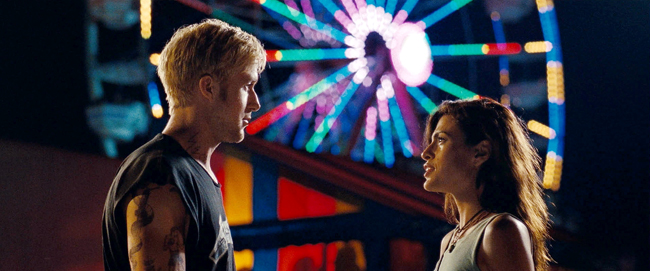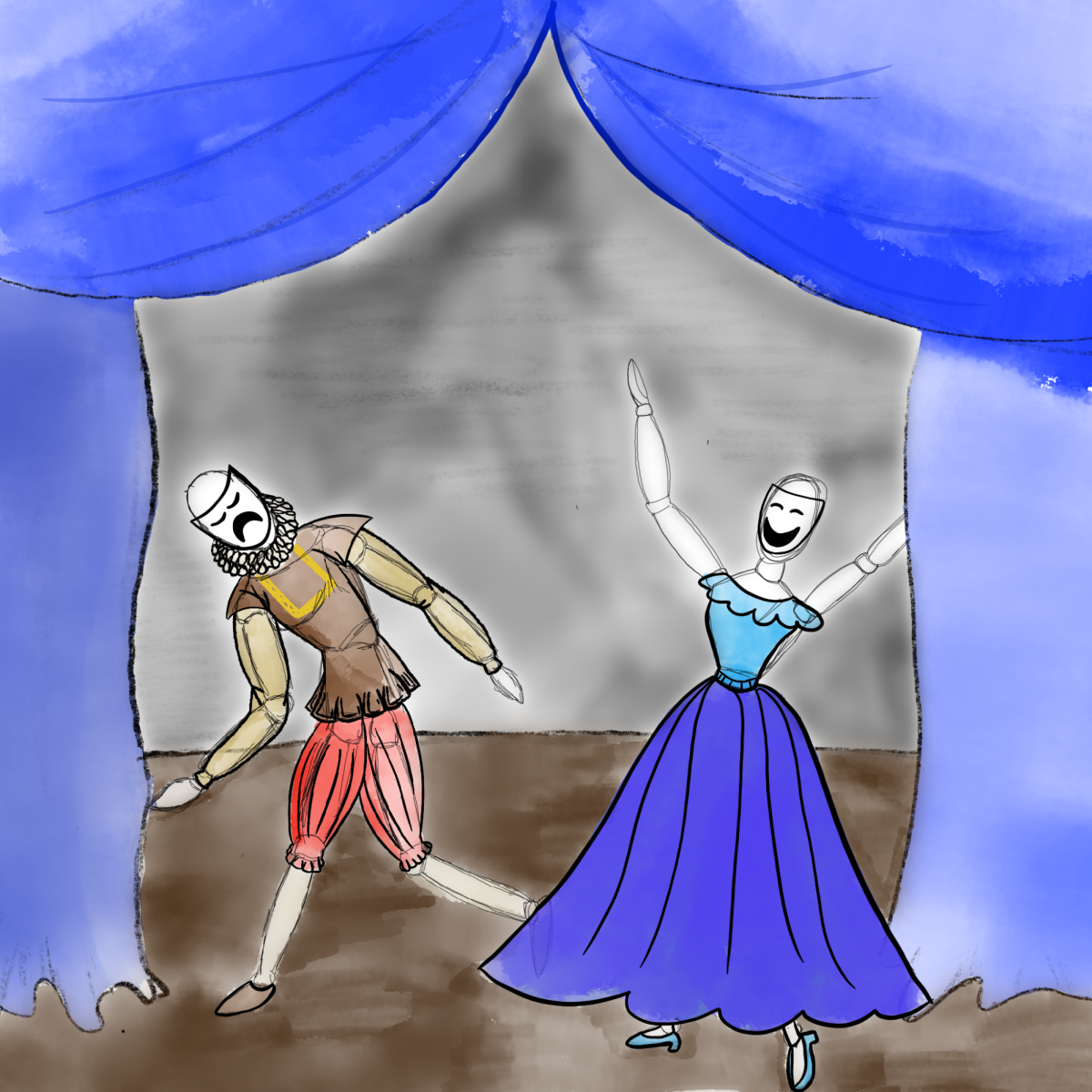Three years after the devastating “Blue Valentine” garnered an Oscar nomination for Michelle Williams’ performance, director Derek Cianfrance returns with the overly ambitious “The Place Beyond the Pines.” Reaching brilliant highs and baffling lows, Cianfrance’s follow-up is a thematically muddled trilogy of increasingly uninteresting tragedies.
Every piece of marketing for “The Place Beyond the Pines” has Ryan Gosling front and center, and for the opening stretch of the film, Gosling gives a commanding performance as Luke, a carnie who reunites with an old fling (Eva Mendes) only to learn he has a son. Luke immediately quits his job to take care of his newfound family, a pursuit that leads him to become a bank robber. Eventually and inevitably, his path tragically crosses with noble cop Avery (Bradley Cooper), kicking off a series of events spanning decades.
Gosling has quietly been carving out a niche in modern crime drama as the ultra-competent, ultra-badass man of few words, and “The Place Beyond the Pines” certainly doesn’t push him out of his comfort zone. This actually feels like a fairly natural extension of “Drive,” another film where Gosling played a man trying to provide for a woman and her son by stepping outside the boundaries of the law. But ‘The Place Beyond the Pines” doesn’t have the narrative or aesthetic control “Drive” did and ends up suffering by comparison. Nonetheless, Gosling has developed a knack for evoking the anti-hero and painting him in a distinctly human light, and his performance is the best in the film.
As things progress, “The Place Beyond the Pines” focuses on Bradley Cooper’s character, drawing thematic connections that it never fully fleshes out, preferring to illustrate its heady ideas through tossed-off lines of dialogue so it can explore a completely extraneous story of police corruption. Cooper is a solid performer, but his character is totally vanilla, and Cooper struggles to bring shading to a script uninterested in ambiguity.
Once the film skips ahead a few years to focus on Luke and Avery’s sons, who become fast friends and faster enemies, Cianfrance is working completely and totally out of his depth, building toward a cluttered climax that’s driven by spotty motivation. Dane DeHaan plays the son of Gosling’s character, and the script hands him a series of bizarre decisions that make him a series of plot points searching for a character, creating a void of personality that DeHaan can’t quite fill.
“The Place Beyond the Pines” strives to be an epic tale of fathers and sons, but its thematic webbing is tenuously strung, and the film too often seems to be grappling with themes that are simply out of its depth. It’s hard to fault a film for overreaching, but “The Place Beyond the Pines” makes the mistake of warping its plot in an attempt to make its message more clear, something that strains the storytelling to the point of sloppiness.
Despite the multiple shortcomings of his script, Cianfrance continues to display remarkable directorial skill, striking an incredible level of intimacy between his actors and his camera. He pushes in as far as he can, bringing us uncomfortably close to the people he’s asking us to sympathize with. Even moments like an intense car chase become personal, visceral experiences thanks to the power that Cianfrance brings to every frame. The film is sharply edited by Jim Helton and Ron Patane, and Cianfrance has several stunningly executed sequences under his belt, especially a lengthy opening shot that instills an innocuous carnival setting with a sense of dread that he sustains throughout the entire film.
Even though “The Place Beyond the Pines” can’t quite fulfill its thematic ambitions, Cianfrance remains a director worth watching. Hopefully he writes a few more drafts of his next screenplay before deeming it filmable, but his directorial work exhibits a keen eye and an admirable bravado that is hard to fault.





















